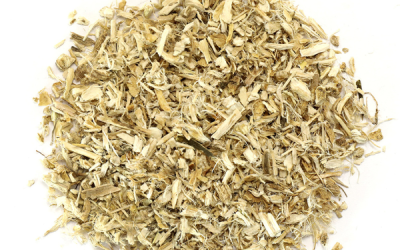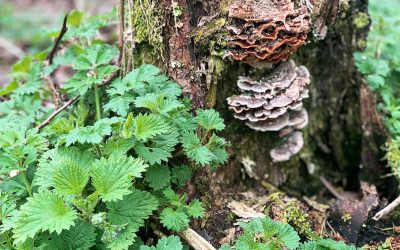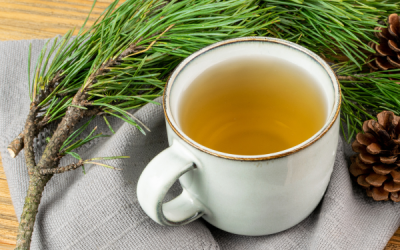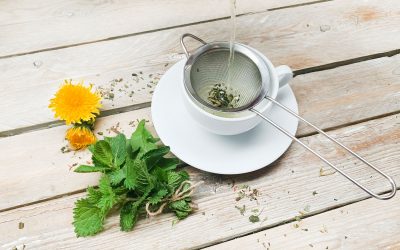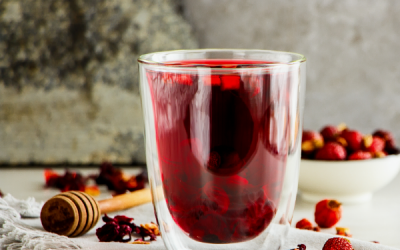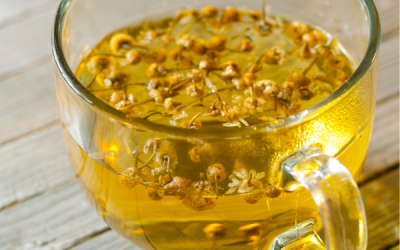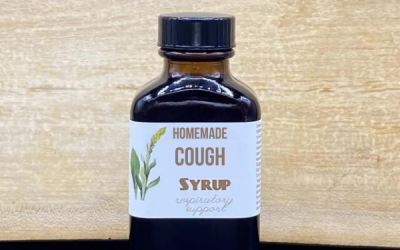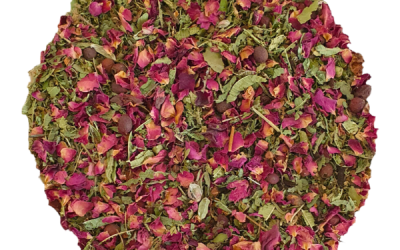Not all inflammation is a bad thing! Inflammation is the immune systems necessary response to protect your body from infection, injury and disease!
But sometimes our immune system goes into overdrive & appears to attack healthy cells! That’s where you get autoimmune diseases such as Coeliac, Arthritis, Thyroid, Asthma, Crohn’s and so on!
What is inflammation?
There are two types of inflammation that your body experiences: acute and chronic.
Acute inflammation
is the type of inflammation that happens when you get a cut which becomes red and tender, or “inflamed.” This is a normal and beneficial response from your immune system for healing. It is also temporary and eventually goes away.
Chronic inflammation
however, is a completely different story. Chronic inflammation is when your immune response is turned on, but it doesn’t shut off. You can’t see or feel it and it’s difficult to test for. Your body is constantly releasing inflammatory chemicals which means your body is in a constant fight against its own cells by mistake.
This is a systemic condition in which cells, artery walls, and tissues are affected, which leads to advanced aging and other chronic diseases such as type 2 diabetes, heart disease and an increased risk for colon cancer.
What can help fight inflammation?
The good news is that you can decrease inflammation in your body by eating anti-inflammatory foods, exercise and changing certain lifestyle factors.
A diet containing the following foods can actually help fight inflammation, reduce symptoms and put you on the path to getting better!!
Turmeric –
Turmeric’s main active component, curcumin — is what gives the spice its yellow color. Curcumin has anti-inflammatory properties, making it a potential treatment for a number of health conditions, including reduced pain and increased ease of movement in people with arthritis.
One study found that taking turmeric extract three times daily was comparable to taking a 1,200-milligram dose of ibuprofen daily. However, more research is necessary to confirm these effects.
Garlic & Onion –
Falling under the category of allium vegetables, garlic and onions fit in the same class as leeks, scallions, shallots and chives. Actually, the word “allium” is derived from the Greek word for garlic.
These vegetables are high in organosulphur compounds, which results in their strong and distinctive flavor and aroma. Both garlic and onions exert antioxidant, anti‐inflammatory, and antibacterial properties.
Ginger –
Ginger has anti-inflammatory, antioxidant, and anticancer properties. Because of this, it’s thought to boost your overall immunity. For people with arthritis, its anti-inflammatory properties are of particular benefit.
Ginger contains anti-inflammatory compounds that function in the same way as COX-2 inhibitors. COX-2 inhibitors are drugs used to treat pain and inflammation.
Berries –
contain polyphenol compounds purported to have anti-inflammatory activity in humans. Among the most notable polyphenols in berries are anthocyanins, responsible for their distinctive colors of red, blue, and purple.
Chock full of antioxidants that can help repair damage at the cellular level and polyphenols, which reduce inflammation throughout the body.
A diet rich in berries is ideal because it is natural, with no harmful reactions or side effects. What’s more, when berries reduce inflammation in the joints they eliminate symptoms at their source rather than just treating the symptoms for a short period.
Nettles –
contain polyphenols, triterpenes, and flavonoids that decrease inflammation as well as reduce pain signals in the body. Nettle has long been used to reduce arthritis and joint pains.
These benefits can be had with internal consumption, but some arthritis patients will even apply the raw stinging form to their joints – preferring the sting to the joint pains that the nettles relieve.
Anti-inflammatory and antioxidant properties can also help clear up the skin. The nutritive contents of nettles can also nourish and tone the connective tissues of the skin.
Mushrooms –
Mushrooms are rich in anti-inflammatory components, such as polysaccharides, phenolic and indolic compounds, mycosteroids, fatty acids, carotenoids, vitamins, and biometals.
Metabolites from mushrooms of the Basidiomycota taxon possess antioxidant, anticancer, and most significantly, anti-inflammatory properties.
In all certainty, edible mushrooms can be referred to as a “superfood” and are recommended as a valuable part of the daily diet.
Leafy Greens –
Leafy greens like spinach, kale, chard, arugula, endive, turnip greens, beet greens, and collard greens all contain significant concentrations of vitamins and other nutrients that have been found to reduce chronic inflammation.
Vitamin A, vitamin D, vitamin E and vitamin K, just to name a few, have all shown, in research, that they can fight inflammation. Many leafy greens also contain alpha-linolenic acid, an omega-3 fat that is known for its anti-inflammatory benefits.
Probiotics –
Healing your gut might just be the single most important thing you do for your body.
Probiotics, or “good bacteria,” lower levels of inflammation in the body, which will benefit people who have inflammatory diseases.
Considering the immune cells are a major source of inflammation, and the highest density of immune cells are found in the intestines….
And if probiotics help heal the intestines, it’s not illogical, to see how probiotics are helping to heal the gut and improve the entire immune system. Consider introducing foods such as natural live yoghurt, kefir, kombucha, saur kraut & other fermented vegetables into your diet daily to protect & maintain your gut flora.
Avocado –
Studies have recently shown that monounsaturated fats can help reduce visceral fat and inflammation and can be found in almonds, canola oil and Avocados. As an added bonus, Avocados also contain carotenoids, an antioxidant that helps lower inflammation
Inflammation triggers to look out for:
🔥 Exposure to irritants
🔥 Pollutants and foreign materials
🔥Certain Medications
🔥 Sugar
🔥 Chronic Stress
🔥 Processed foods
🔥 Refined carbohydrates
🔥 Alcohol
🔥 trans fats
🔥 hereditary conditions
Anti-inflammatory Diet
Research shows that people who follow a Mediterranean diet have lower levels of inflammation in their bodies.
What is the Mediterranean diet?
The Mediterranean diet is a way of eating that is similar to the cuisine of countries along the Mediterranean Sea, such as Greece. There is no single definition of the diet, but you will eat mostly plant based foods. Plant based foods & high fiber foods also act as prebiotics for our gut flora and provide the very food they need to thrive and maintain our health.
A study published in the New England Journal of Medicine has shown the Mediterranean diet to reduce the risk of heart attack, stroke, and death related to heart problems by 30%. The diet can be used as a long term eating pattern to promote health, control blood sugar and prevent chronic disease.
What kinds of foods are included in the Mediterranean diet?
You will eat a lot of plant-based foods like fruits and vegetables, potatoes, whole-grains, beans, nuts, seeds and extra virgin olive oil. Meals are planned around these foods. The diet also includes moderate amounts of lean poultry, fish, seafood, dairy and eggs. You should avoid deep fried foods, sweets, red meats, sugar and white flour products.
Can Supplements help fight inflammation
As well as following an anti inflammatory diet, for extra effect why not add in some natural supplements that will aid your symptoms and kick start your recovery such as;
Omega 3 fish oils are among the most potent anti-inflammatory supplements. These supplements may help fight several types of inflammation, including vascular inflammation
Turmeric powder capsules may help reduce inflammation to speed up wound healing and even reduce cancer risk. A 2011 study also found that curcumin may help reduce inflammation from obesity-related metabolic conditions. Curcumin altered several inflammatory pathways, reducing insulin resistance, hyperglycemia, and hyperlipidemia.
Ginger tea Gingerol, shogaol, and paradol, which are the active constituents in ginger, are what make this spicy root so anti-inflammatory.
Studies have shown that ginger inhibits the production of the pro-inflammatory cytokines that make inflammation happen more frequently in the body. Check out my favourite Ginger tea blend here, created with inflammation specifically in mind.
Ginger tincture is another way to get ginger into you especially if making tea or putting it into your food is too much effort. Often times people with arthritis can struggle with adding in these roots to their diet and that is where tinctures come in.
They are a simple & effective way of getting the benefits straight into your blood stream. Simply add a few drops to water, juice or straight under the tongue. Click the link to our Anti-inflam tincture with Ginger & cinnamon
Zinc is a potent anti-inflammatory that may support the immune system and reduce several markers of inflammation.
According to a 2014 paper, zinc decreased inflammation and oxidative stress among older adults. Oxidative stress triggers inflammation and may increase the risk of a host of conditions, including cancer. Zinc also reduced the rate of infections by 66%. People with zinc deficiency are more likely to have arthritis, suggesting a link between zinc deficiency, inflammation, and pain.
Herbal Teas– Many herbs have anti-inflammatory properties and have been used for hundreds of years to treat pain, inflammation, and other health conditions. They contain powerful antioxidants that can help to neutralise free radicals and protect your cells against damage from oxidative stress. In turn, this reduces your risk of developing chronic inflammation.
Some herbs and spices also disrupt the inflammatory response directly by inhibiting the production of signalling molecules called cytokines, which activate inflammation. Many can help to reduce the pain associated with inflammatory conditions too.
Always choose loose leaf & organic where possible as this will ensure you extract the most nutrients from your tea and you are not consuming any unnecessary chemicals or pesticides that could exacerbate the problem. HealthTea herbal teas are all Irish grown, chemical free and loose leaf for this very reason
click here to visit our TEA SHOP
Franincense can ease both inflammation and pain. It may also help reduce cartilage loss and reverse autoimmune symptoms. It is a fast acting supplement that may help with osteoarthritis pain in just 5 days. The usual dosage is an extract containing 30–40% boswellic acids, which a person takes in 300–500 mg doses two to three times per day.
Combining frankincense with curcumin may increase its potency, and some research has found that people tolerate this combination better than the NSAID diclofenac.
Cats claw may reduce various forms of inflammation. It is especially effective at inhibiting TNF-alpha, an inflammatory chemical in the body.
If using cat’s claw tea, drink a ratio of 1,000 mg of root bark to 230mls of water. It is also safe to consume as a powder in capsule form, in daily dosages of 20–60 mg.
Remember
Inflammation is an essential part of your body’s healing process. It occurs when inflammatory cells travel to the place of an injury or foreign body like bacteria. If inflammatory cells stay too long, it may lead to chronic inflammation.
Chronic inflammation is a symptom of other health conditions, such as rheumatoid arthritis. Your healthcare provider may recommend medication or at-home management. You can reduce inflammation by eating anti-inflammatory foods and managing stress.

Unlocking the Mystery of Adrenal Fatigue: Separating Fact from Fiction
Understanding Adrenal Fatigue Adrenal fatigue is a term used to describe a cluster of symptoms, including body aches, fatigue, nervousness, sleep disturbances, and digestive problems. The concept revolves around the idea that chronic stress can overwhelm the adrenal...
Marshmallow Root vs. Slippery Elm – Which is Better for You?
In the world of herbal remedies, two plants often stand out for their soothing properties: marshmallow root and slippery elm. While both are renowned for their mucilaginous qualities and ability to ease discomfort, they each have unique attributes that make them...
8 Ways To Prevent Allergies & Hayfever
If you or someone you know deals with seasonal allergies, start increasing your intake of these foods and watch what happens!!
The Secrets of Pine Needle Tea: Health Benefits and Foraging Guide
Pine needle tea has been a bit of a secret among natural health enthusiasts. This aromatic tea is packed with Vitamin C—several times more than in a fresh squeeze of lemon—and is a great way to boost your immune system
The Easy Way To Boost Your Iron Levels Without Supplements
Iron is an essential mineral crucial for our overall health and well-being, playing a vital role in carrying oxygen throughout our bodies. While synthetic iron supplements are commonly used to combat iron deficiency, natural sources like wholefoods, plants, and herbs offer a more holistic approach to boosting iron levels.
Top 5 Herbs for Combatting UTI Naturally!
Herbs can offer serious support for the discomfort of UTI’s & help you to avoid the overuse of antibiotics.
Herbs for a Tummy Bug!
rotavirus — the dreaded tummy bug. While there is no way to stop this virus once it takes hold, you can absolutely ease the symptoms.
Two of my favorite herbs for digestive distress are…
Herbs Not Working For You? This is Why!
Wondering why the herbs you’ve been trying don’t seem to have the desired effect? Starting to think all herbalists are delusional plant loving hippies?
Herbal Cough Syrup Recipe: A Natural Remedy for Coughs
The Importance of Herbal Remedies Herbal remedies have been used for centuries to treat various ailments, including coughs. Our ancestors understood the healing power of nature and turned to herbs to alleviate their symptoms. In today's chemical laden...
Herbs To Lower Cholesterol And How to Use Them
High levels of LDL cholesterol can leave us at risk of atherosclerosis and heart disease. Find out which herbs can help you manage your cholesterol in our latest blog post. — You likely already know that having high cholesterol levels is bad news for your heart...


